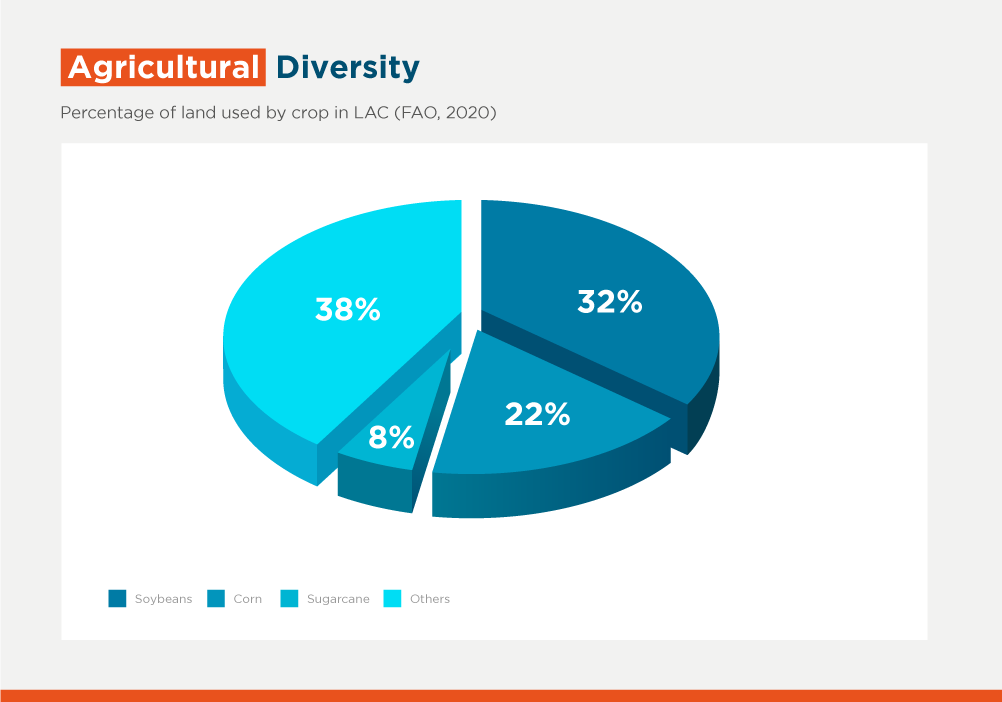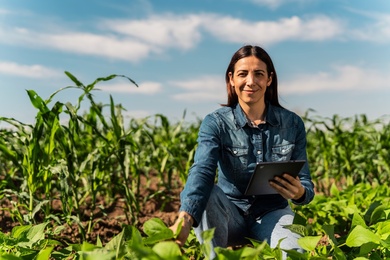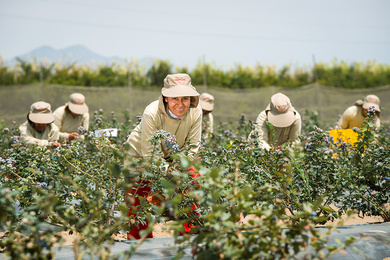Digitalization May Help Latin America to Alleviate Global Food Shortages

Latin America and the Caribbean (LAC), one of the world’s most important sources of agricultural products, is in prime position to step in and alleviate global food shortages as climate change looms as a global threat, particularly if it improves efficiency by leveraging digital solutions.
The region's agricultural systems are among the planet’s most dynamic and complex given its significant latitudinal range and biodiversity, and countries like Argentina are already taking advantage of this by targeting record wheat exports for this year and the next. Meanwhile, others face challenges because of rising fertilizer prices, according to the findings in IDB Invest’s “Digital Transformation of Agribusiness in Latin America and the Caribbean” report, compiled in tandem with Accenture.
The Food and Agriculture Organization of the United Nations (FAO) estimates that LAC accounts for 18% of the world’s food production on 12% of the land cultivated globally. Given that the region also has less population density than countries in much of Asia, Europe and Africa, many countries in the region also export a more significant share of its production than elsewhere.
Brazil is the country with the highest volume of production (63%), cultivating 48% of the region's total arable land. Argentina and Mexico follow as the most important producers in the region, with 10% and 8% of production in 22% and 9% of the arable land, respectively.
All of these countries need strong agricultural sectors to prosper: as some studies have shown, growth in agriculture, given its particular potential in the region and the high share of workers it employs, is two to three times more effective at reducing poverty than equivalent growth in other sectors such as mining, manufacturing and services
However, some long-standing problems in the agribusiness sector – including low productivity and relatively weak value chains – have been compounded by recent stresses in global markets driving an increase in the price of fertilizers.
This has added complexity to a difficult situation, as corn price inflation has affected wheat prices as well, given that it is a direct substitute for corn for animal feed. Wheat exports may be booming, but LAC producers may be shifting resources towards soybean production because it requires less fertilizer.
Short-term stresses in the market are significant now but may soon be a blip on the map, by comparison with the threat presented by climate change. In order to boost resiliency, agribusinesses across the region face an increased need for greater productivity; a tool to mitigate risks; the need for the right talent and right budget within the organization; better connectivity and governance in digital transformation; and ecosystem collaboration and coordination, the report finds.
All these challenges present a clear incentive for LAC agribusinesses to become more efficient through the use of digital solutions. Many of these news tools are often categorized under what it’s called Agriculture 4.0 transformation: a process driven by IDB Invest through technical cooperation with the Private Markets for Climate Resilience (PMCR) project to systematically evaluate potential solutions in the private sector, with a focus in agriculture and transportation, as well as others that look to use available technologies to address incoming challenges.
Furthermore, this digital transformation is an important tool for agribusinesses to improve their compliance with the Sustainable Development Goals. A sustainable agenda leveraged by Digital Transformation can not only increase an organization’s productivity, but also promote inclusion of women in agriculture reducing poverty and hunger and promoting economic development by investing in gender-smart policies and practices, as well as increasing financial inclusion with the digitalization of financial services in remote and rural areas
All of these steps can help LAC agribusinesses become more efficient and lower the consumption of precious resources such as land and water. And they can also make it easier for big agribusiness companies to tap international markets where sustainable firms have an extra edge when it comes to attracting much-needed capital.
Download the publication and watch the webinar about it at:
LIKE WHAT YOU JUST READ?
Subscribe to our mailing list to stay informed on the latest IDB Invest news, blog posts, upcoming events, and to learn more about specific areas of interest.
Subscribe




